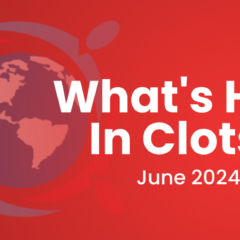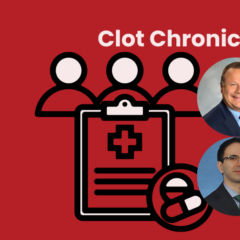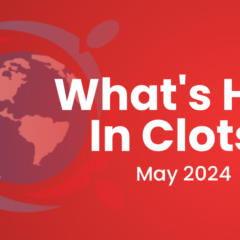Last updated on
Spreading Support Across North America
Support: Verb. To bear all or part of the weight of; hold up; to enable to function or act
The North American Thrombosis Forum is doubling down on its commitment to supporting patients and caregivers. NATF is proud to announce that it will be expanding its successful support group program beyond Boston, spreading new in-person support groups across North America.
Thanks to a recent grant from Bristol-Myers Squibb, NATF hopes start 28- 30 new support groups over the next 18 months, reaching over 13,500 new patients and caregivers.
Looking Back
Twenty-six years ago, Samuel Goldhaber, MD, professor of medicine at Harvard Medical School and president of NATF, recognized a need in his patients who had recently been diagnosed with pulmonary embolism (PE) and deep vein thrombosis (DVT). It was a need for information and feedback, a need for support.
Many patients at the time were discharged from the hospital with their new diagnosis and told to see a specialist, such as Dr. Goldhaber. They were left confused and unsure of where they could turn to for more information.
“We started seeing patients come in frantic,” said Ruth Morrison, RN, a nurse who works alongside Dr. Goldhaber.
Driven by the needs of their patients, Dr. Goldhaber and Ruth started NATF’s first support group for patients with PE and DVT, providing them with a place to learn from other patients’ experiences and to receive answers for their most personal questions.
“The PE and DVT support groups give healthcare providers, patients, and patients’ families a chance to reflect on the social and psychological implications of having a thrombotic illness,” explained Dr. Goldhaber. “During a regular office visit, the visit can be rushed and is clinical. It doesn’t lend itself to extra reflection about the emotional and psychological impact that clotting problems can have. We know that there can be long term emotional impact from a clotting disorder. The support group gives a voice to those concerns and also allows support and encouragement on a peer-to-peer basis.”
Bearing the Weight
Over two decades after it began, Dr. Goldhaber’s support group is still going strong and meets monthly at Brigham and Women’s Hospital. Over the years, the group has grown but retains many of its initial members.
“[There are] a lot of things that are really special about our support group…We have people coming back from twenty years ago,” explained Ruth. “They really help the newly diagnosed patients. I think it makes them feel better that they can help somebody else.”
“It was extremely beneficial for me to hear that others had similar fears,” said one support group-goer. “Just being able to express these fears and feelings to others was a tremendous help to me.”
Because the support group is led by a doctor, patients can get answers to questions they may have about their treatment process or their illness.
“Often times in a clinic setting, you don’t get the time to think about what your being told and ask your questions,” said Kat Marriott, the assistant director of marketing for NATF who regularly attends meetings. “Being able to ask a clinician those questions is very useful to patients.”
In addition to the in-person support group offered in Boston, NATF has recently started online support groups to reach people across the country. Around twelve online meetings have taken place, with more than 400 people registered.
“It allows anyone with web access anywhere on planet earth to participate,” said Dr. Goldhaber about the power of the online support groups.
Get Involved
NATF’s new support groups will be led by clinicians and patients alike. The program’s success will rely on volunteers who are ready to make a difference in their communities.
Will you step up and help others dealing with thrombosis? If you are interested in potentially leading a group, please contact us at [email protected] for more information.



